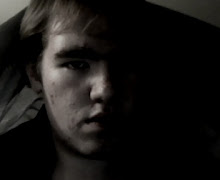Tuesday, September 28, 2010
The Importance of Being Bloom
New reviews coming up soon, within the next few days. Hopefully I'll have more news soon.
JPC
Thursday, September 23, 2010
Empty
JPC
PS Salander, not Bella, is the heroine of our times
Tuesday, September 14, 2010
Saturday, September 4, 2010
Is Franzen "Franzen"?

Not like who is he as in "Who is he in the public's mind?" That I know. We all know him as the somewhat uptight author of the bestseller of the pre-9/11 eerily accurate Bush-era novel The Corrections. Unlike Updike, the similarly themed malaise-of-suburbia writer, Franzen has the persona of a real jerk. Updike, purveyor of culture high and low, was known as a jolly, happy Pennsylvania boy with a serious side. Franzen is the lonely, self-obsessed and uncomfortable author trapped in the city, peering with contempt into the suburban life. How did he get this image?
Well, that's a long story.
With the release of his new novel, Freedom (which I am currently looking forward to reading--I have my copy stashed away where no one can get it), a slew of media has been dedicated to this man and his reputation and all of the usual stories are being played out again. The "Oprah" snub--a lose/lose situation if ever there was one. Whether he snubbed her or she snubbed him doesn't really matter anymore, considering that her show is going off the air soon.
So why bring it up every story? It's a good way to fill in a few extra columns.
Indeed, in the Time magazine story (the first time in, what, ten, fifteen years that a writer has been on the cover of Time?) includes semi-juicy gossip on this particular angle. I preferred when they described his writing room. Even the pictures (gray-scale and amazingly bland) were more interesting and probably had more to do with the book than yet another "Oprah" moment.
What are the reviews saying? They seem to be reviewing his persona more often than they are reviewing the book--a rookie mistake if ever there was one. The novel is compared with his last, shining glory, The Corrections. No one says if it's a step up from his awful, awful non-fiction works, The Discomfort Zone (which I dare everyone to try and read without becoming frustrated and throwing the book across the room) and the self-righteous essay collection How to be Alone. (Remember, "Alone" is the key word.)
Even by looking at Franzen's non-fiction (stuff that [I would assume] he's had the final "OK" on), we still don't know who he is. Excluding the media-image on the man doesn't help. The "Franzen Character" that Franzen presents to the media is, perhaps intentionally or unintentionally, a real snot, a jerk. I'm sure he doesn't intend it to come off that way, but that's the way he is received, none the less. Perhaps the media image of himself has become the way he views himself, which would be a sad thing. However, it might just be that he's presenting himself as this kind of know-it-all just for the sake of having people say things like, "He's a total jerk, but man can he write good fiction!"
JPC
The Importance of the Bandanna

"[Lipsky says] Tell me about the bandanna stuff we were talking about yesterday.
[Wallace replies] I started wearing bandannas in Tuscan because it was a hundred degrees all the time. When it's really hot, I would perspire so much that it would drip on the page. Actually, I started wearing it that year and then it became a big help in Yaddo in '87, because I would drip into the typewriter and I was worried that I was gonna get a shock.
And then I discovered that I felt better with them on...
I mean, I don't wear it all the time. I wear it--I know it's a security blanket for me--whenever I'm nervous. Or whenever I feel like I have to be prepared, or keep myself together, I tend to wear it... [I]t made me feel kind of creepy that people view it as an affection or a trademark or something. It's more just a foible, it's the recognition of weakness, which is that I'm just kind of worried that my head's going to explode." (295-6)
I also saw Jonathan Franzen on the cover of Time. Interesting man, dull as dishwater, though. Seriously man, don't get all hung up about the whole gray scale/bland-colors, tortured-writer-working-in-a-wasteland BS that teenagers dream about (2) and just try to get some enjoyment out of it. I hate that Time had to abridge the piece for their online edition. Why? The whole subtext (or subplot or detour or whatever you prefer) about his friendship with Wallace was one of the best parts, humanizing the seemingly un-human writer. As such, the Internet version of the article just seems to enforce the idea of Franzen as a detached, frigid, genius.
JPC
Footnotes:
(1) This is not an original observation; several others have preceded me (including Wallace Himself).
(2) Every writer goes through this phase. I did too. The good ones out-grow it. The great ones make fun of it, play with it; make it their own. Franzen has yet to develop beyond that stage. He is a great writer; he just needs to become a better individual.


